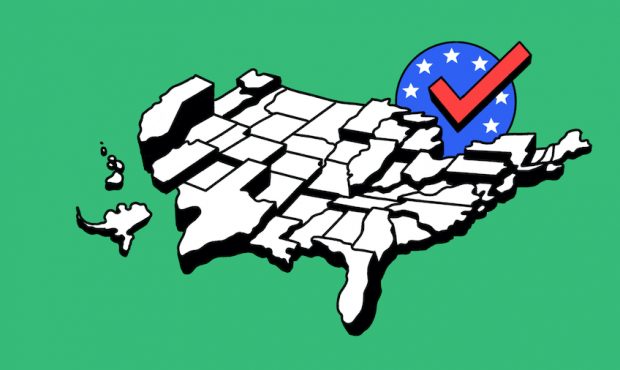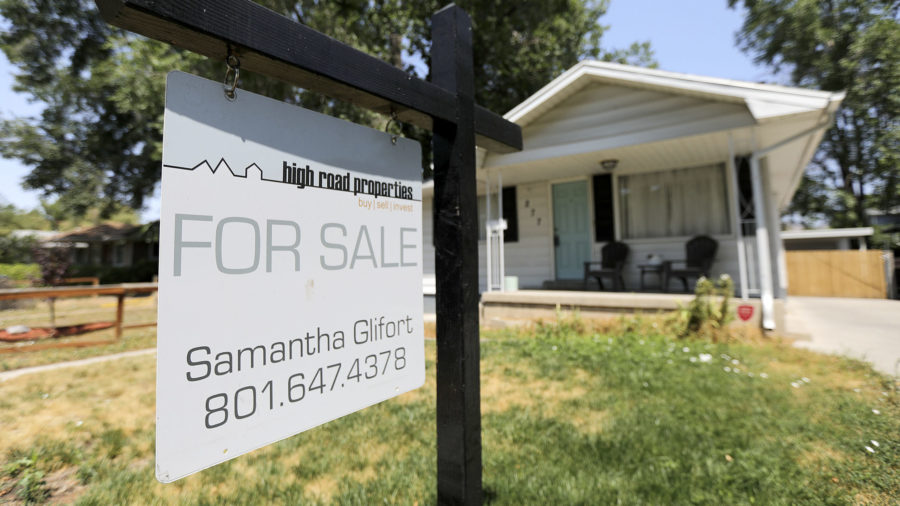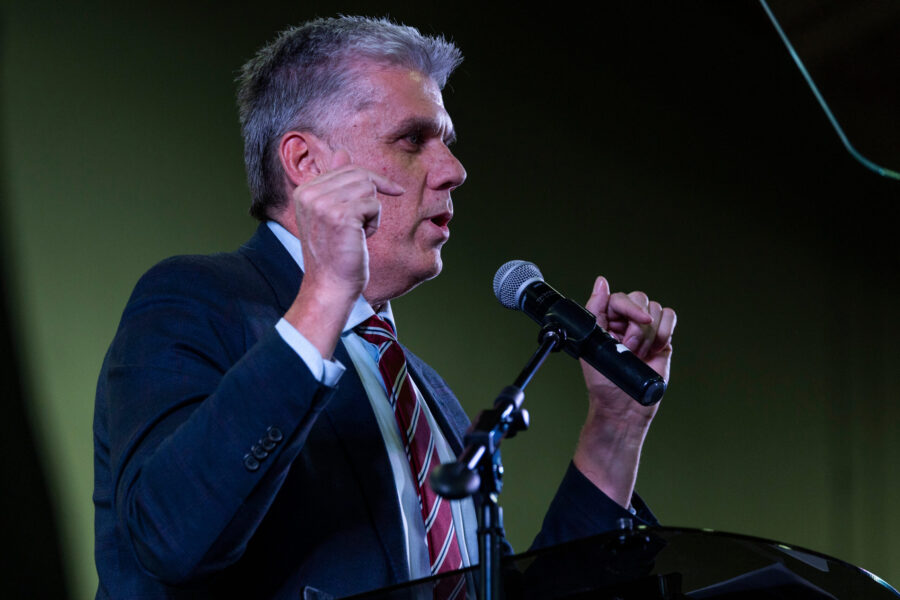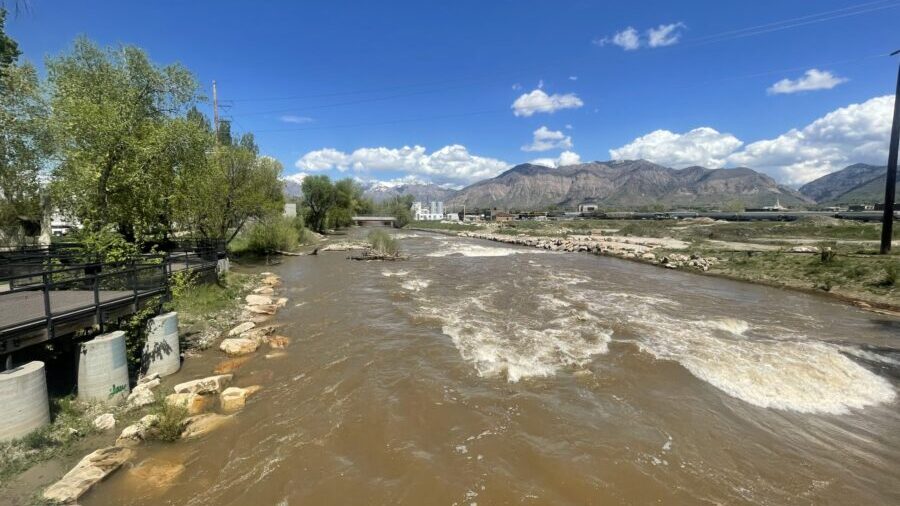The Electoral College Explained
Oct 12, 2020, 1:21 PM | Updated: Oct 27, 2020, 11:13 am

Electoral College (Graphic: Max Pepper/CNN)
(Graphic: Max Pepper/CNN)
The Electoral College will again determine who’ll become President this year, as it has for more than two centuries of confusion. And Americans will once again ask themselves how the system has outlived generations of controversies.
In five US presidential elections — including in 2016, when Donald Trump edged Hillary Clinton — the eventual winner has lost the popular vote but won the Electoral College.
The prospect that it could happen again this year has led to yet another campaign to abolish the Electoral College in favor of a simple majority vote.
But the Electoral College has proven resilient, and Constitutional rules make changing or eliminating it difficult. Here’s why it’s been so polarizing.
The History of the Electoral College
The Electoral College has been a part of the Constitution since that founding document took effect in 1789. Any changes to its system require a Constitutional amendment.
The Founding Fathers established it as a compromise between a popular vote and a vote in Congress. Under its system, each state gets a number of electors proportionate to its population: For example, California, the most populous state, has 55 electoral votes while Wyoming, the least populous state, has just 3.
All but two states — Maine and Nebraska — give all their electoral votes to the presidential candidate who wins the popular vote in that state. Whichever candidate wins a majority of the electoral votes nationwide — at least 270 — becomes president.
Three times in the 1800s, the winner of the popular vote missed the presidency after falling short in the Electoral College, leading to complaints that the system ignored the will of the people.
Over the years more than 700 proposals have been introduced in Congress to change or eliminate the Electoral College, according to government records. Congress came close to doing away with it some 50 years ago when a proposal to replace it with a popular vote system passed in the House in 1969 but failed in the Senate the following year.
The push to replace it intensified after the bitter presidential election of 2000, when Al Gore won the popular vote by more than half a million votes but lost the election to George W. Bush after the Supreme Court halted a recount in Florida, the deciding state.
Opponents of the Electoral College got more ammunition in 2016 when Hillary Clinton received almost three million votes more than Donald Trump but still lost.
Since then, the movement to get rid of the Electoral College has gained more momentum. But so has resistance to changing it.
What Some Historians Say
Alexander Keyssar, a professor of history at Harvard Kennedy School and author of “Why Do We Still Have the Electoral College?” says that Southern white supremacist leaders challenged the idea of a national popular vote from the latter decades of the 19th century into the 1960s.
“Both during slavery and also after slavery, well into the 20th century in fact, the states of the South stood firmly in opposition to the adoption of a national popular vote,” he said. “The South was the bulwark of opposition during the period of slavery, of course, because slave-holding states received extra electoral votes thanks to the three-fifths clause.
“White Southerners, thus, gained added influence in the Electoral College, and if they had switched to a national popular vote, they would have lost that influence,” Keyssar said.
The three-fifths compromise was an agreement between Northern and Southern states and essentially said that only three-fifths, or 60%, of slave populations would be counted to determine representation in the House of Representatives — and electors in the Electoral College.
In this way Southern States used slave populations to increase their political influence without having to recognize slaves as equal to Whites. Most slaves also had no voting rights.
“The Electoral College brought that same three-fifths compromise into presidential elections and thus gave Southern states political power out of proportion to their White populations from the beginning,” Keyssar said.
Even now, some Southern states believe abolishing the Electoral College would reduce their influence and undermine White power, Keyssar said.
“The presence of racism and White supremacy in the South helps to prevent the country from adopting instead of the Electoral College a national popular vote,” he said.
Critics and Defenders
America’s electoral system has long baffled the world. But some experts say the process gives a voice to less populated states.
“The Electoral College is a very carefully considered structure the Framers of the Constitution set up to balance the competing interests of large and small states,” wrote Hans von Spakovsky, a senior legal fellow at the Heritage Foundation and a former commissioner for the FEC.
“It prevents candidates from winning an election by focusing only on high-population urban centers (the big cities), ignoring smaller states and the more rural areas of the country. … The college forces candidates to seek the support of a larger cross-section of the American electorate — to win a series of regional elections.”
While critics of the system have argued that Hillary Clinton lost the election unfairly, Spakovsky says her case is a perfect example of why the Electoral College works better than the majority vote.
“The Framers’ fears of a ‘tyranny of the majority’ is still very relevant today. One can see its importance in the fact that despite Hillary Clinton’s national popular vote total, she won only about a sixth of the counties nationwide, with her support limited mostly to urban areas on both coasts,” he said.
Senate Majority Leader Mitch McConnell has also challenged the idea of a national popular vote.
Some defenders of the Electoral College have used racial undertones. Just last year, former Maine Gov. Paul LePage said abolishing the current system would marginalize White people.
“Actually what would happen if they do what they say they’re gonna do is White people will not have anything to say,” LePage said in a radio interview. “It’s only going to be the minorities that would elect. It would be California, Texas, Florida. All the small states like Maine, New Hampshire, Vermont, Wyoming, Montana, Rhode Island, you’ll never see a presidential candidate again.
“You’ll never see anybody at the national stage come to our state,” he added. “We’re gonna be forgotten people. It’s an insane, insane process.”
Reforming or Abolishing It Would Be Difficult
The Electoral College has changed several times, each by constitutional amendment. The 12th Amendment, passed in time for the 1804 election, allowed electors to cast two votes — one for President and another for Vice President. The 20th Amendment put a time limit on the process. The 23rd Amendment gave electors to the District of Columbia.
In a 2018 survey, 65% of Americans supported selecting the President by popular vote, compared to 32% who preferred the Electoral College.
But eliminating the Electoral College system would be hard, for several reasons.
Changing the Constitution takes years and requires broad majorities in Congress or state legislatures. Smaller states that benefit from the Electoral College would have to give up some of that power.
Politics has also played a role in preserving it, with many Republicans believing the Electoral College is more beneficial to their party.
“They think it’s to their advantage to keep the Electoral College. And since you need the two-thirds in Congress to amend the Constitution, it makes it difficult to do that if one party is opposing it,” Keyssar said. The current electoral system also divides power between the federal government and the states, making it complex to reform any one piece of it, he added.












